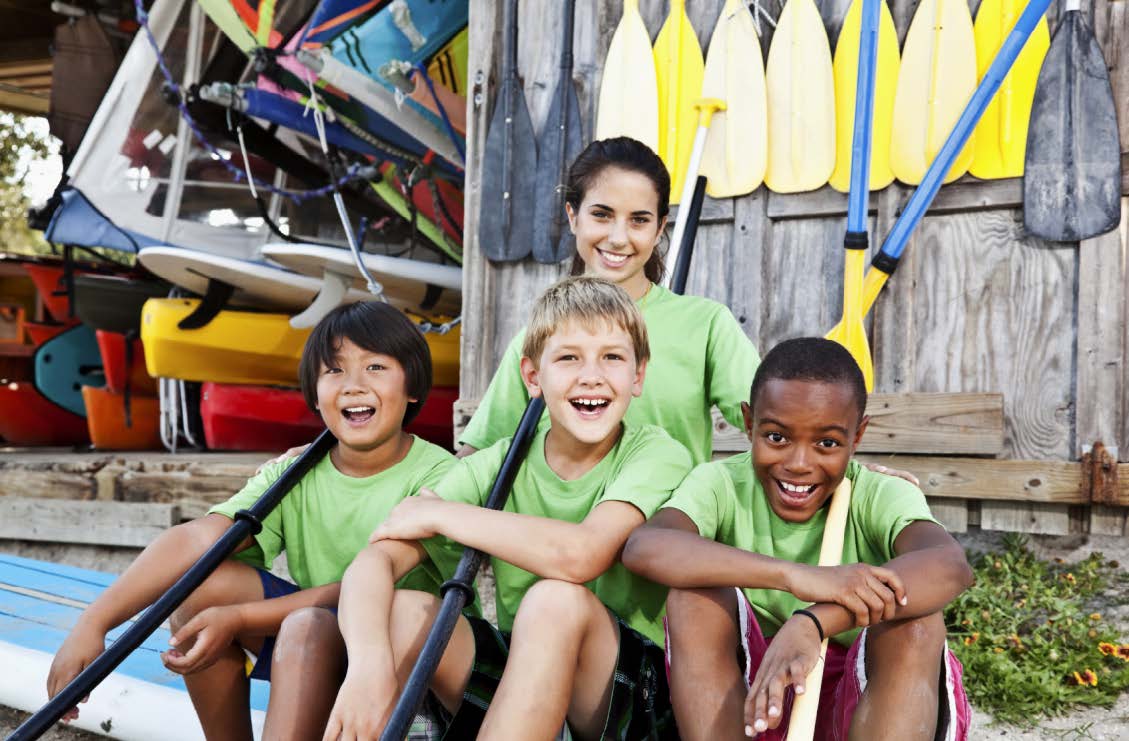A PARENT'S GUIDE TO PICKING THE BEST CAMP FOR YOUR CHILD WITH SPECIAL NEEDS
BY LAUREN AGORATUS, M.A.
Every child with a disability has different needs, even those with the same diagnosis. Families may be at a loss to find summer activities for their children with special needs.
When thinking about summer activities for their children with disabilities, families should consider whether their child is eligible for extended school year services, which might be appropriately provided in a camp. They should also consider whether their child with disabilities could benefit from an inclusive summer camp experience.
IS THE CHILD ELIGIBLE FOR EXTENDED SCHOOL YEAR?
Some children are eligible for an extended school year (ESY) so they can maintain the skills they have learned. This is an IEP (individual educational program) team decision, and parents are part of the IEP team. If families have difficulty accessing ESY services for their child, they can contact the Parent Training and Information Center in their state for free help (see Resources, next page). Regarding coordination of ESY and camp, consideration should be given to the following:
- • If the child doesn't have ESY, when is camp available?
- • If the child does have ESY, can camp be considered the ESY placement? If not, can the child attend camp the remaining weeks? Many camps now have a "regular" and "ESY" camp schedule, or pay week-by-week, to cover the summer.
WOULD A TYPICAL SUMMER CAMP BE APPROPRIATE, WITH ACCOMMODATIONS?
Many children with disabilities could have a successful experience at a typical summer camp, with the appropriate accommodations. In general, under the Americans with Disabilities Act, summer camps are required to make "reasonable" accommodations to include children with disabilities. This might include making special dietary provisions, training staff to address allergies, or identifying buddies to provide additional support, among other accommodations. The ADA provides that, "No individual shall be discriminated against on the basis of disability in the full and equal enjoyment of the goods, services, facilities, privileges, advantages, or accommodations of any place of public accommodation by any person who owns, leases (or leases to), or operates a place of public accommodation."
For more information, check out, "Inclusion of Children with Special Needs in After-School and Summer Programs: A Guide for Families and Professionals," at njsacc.org/pdfs/childrenspecialneedsbook- let_WEB.pdf. The American Camp Association also has a guide, Let's All Play: Helping to Make Inclusive in Summer Camps a Success, at acacamps.org/resource-library/camping-magazine/lets-all-play-helping-make-inclusion- summer-camps-success.
HOW TO FIND A CAMP
HOW TO FIND A CAMP The American Camp Association also has a family guide as well as "find a camp" listing. Many organizations for specific disabilities may also have suggestions. Lastly, other families and family organizations, such as Family to Family Health Information Centers and Parent-to-Parent USA affiliates, might have recommendations in their geographical area (see Resources, next page).

PITCHING CAMP: At camp, beyond arts-and-crafts and other skills, children learn by socializing with other children. By choosing the best camp for their child with special needs, families will enhance their child's summer experience.
QUESTIONS FOR CAMP DIRECTORS
Families will naturally be concerned with how their child's needs can be met at camp. Communication is key for families to have a positive camp experience. Parents can ask basic questions over the phone before deciding to visit a camp. Questions they can discuss with camps when visiting could include:
- ➢ For children with medical needs, is there a "camp nurse"?
- ➢ Can the child self-administer medication?
- ➢ How are children transported to/from camp?
- ➢ Is there consideration of special diets? Food allergies?
- ➢ How does the camp accommodate children with special needs?
- ➢ Is this a day or overnight camp?
- ➢ Does the child need one-to-one assistance? Many camps offer this.
- ➢ Will the child be engaged with typical peers?
- ➢ How does the camp address challenging behaviors?
- ➢ Are there backup plans in place for children at risk of dehydration, sun sensitivity, or heat exhaustion?
HOW TO PAY FOR CAMP
Besides private pay, in many states the state agency that provides services to children with disabilities or special healthcare needs offers some help paying for camp, in some cases, even including aides. In addition, there may be a county Office on Disabilities offering additional financial assistance. Lastly, many civic groups such as the Elks, Kiwanis, or Jaycees offer free camp for children with special needs (see Resources, below).
Camping is often seen as a rite of passage to growing up for all children. Beyond arts-and-crafts and other skills, children also learn by socializing with other children. By choosing the best camp for their child with special needs, families will enhance their child's summer experience.
ABOUT THE AUTHOR:
Lauren Agoratus, M.A. is the parent of a child with multiple disabilities. She serves as the Coordinator for Family Voices-NJ and as the central/southern coordinator in her state's Family-to-Family Health Information Center, both housed at SPAN, found at spanadvocacy.org
SEND A KID TO CAMP : A GUIDE TO PICKING A SUMMER CAMP
WRIGHTSLAW wrightslaw.com/nltr/13/nl.0430.htm
UNDERSTOOD.ORG Extended School Year Services: What you Need to Know understood.org/en/friends-feelings/child-social-situations/summer-camp-summer-school/extended- school-year-services-what-you-need-to-know Summer Learning Programs for Students with Learning and Attention Issues understood.org/en/friends-feelings/child-social-situations/summer-camp-summer-school/summer- learning-programs-for-kids-with-learning-and-attention-issues
PARENT TRAINING AND INFORMATION CENTERS parentcenterhub.org/find-your-center parentcenterhub.org/esy-services-beyond-the-school-year-for-students-with-ieps
AMERICAN CAMP ASSOCIATION acacamps.org/campers-families
PARENT-TO-PARENT parentcenterhub.org/find-your-center
FAMILY-TO-FAMILY HEALTH INFORMATION CENTERS familyvoices.org/affiliates
NATIONAL ASSOCIATION OF COUNCILS ON DEVELOPMENTAL DISABILITIES nacdd.org/councils
ELKS elks.org/states
KIWANIS locator.kiwanis.org/FindAClub